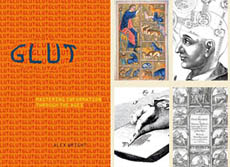A Scanner and a Mission
June 13, 2007
Paul Ford talks about digitizing the Harper's archive in this AIGA interview with David Barringer. I already knew Paul had more-or-less designed and built the whole thing himself, including the brilliantly idiosyncratic front end, but I never would have guessed that he actually scanned every page of the magazine's 150+ year run himself.
...
Creating this archive is certainly the hardest thing I've ever done—much harder than writing a novel, for instance. The trade for that work is that I have learned a great deal: about programming, about editing, about American history, about changing styles in prose and art, about typography, about the pagination of magazines in the 1920s.
...
What I have built is remarkably close to my vision: a massive, interlinked, searchable document that provides quick access to 157 continuous years of Harper's Magazine - something that will help researchers, appeal to readers (and thus to advertisers), and that will, hopefully, provide relevance and context in a web that is filled with hour-old news.
File under: Informatics
_____________________« Frank Lloyd Wright interview | A note on the notes »
GLUT:
Mastering Information Through the Ages
New Paperback Edition
“A penetrating and highly entertaining meditation on the information age and its historical roots.”
—Los Angeles Times
